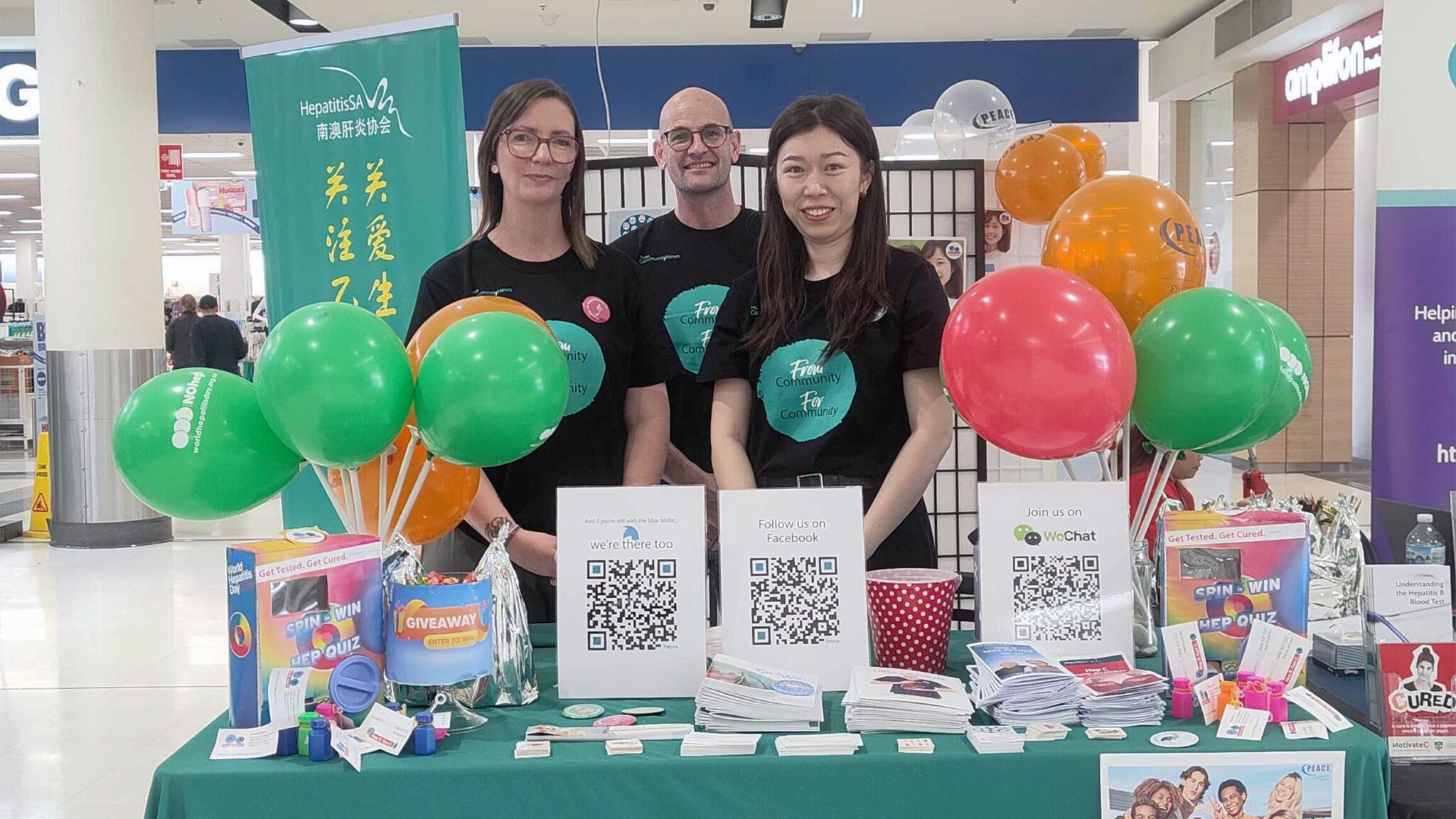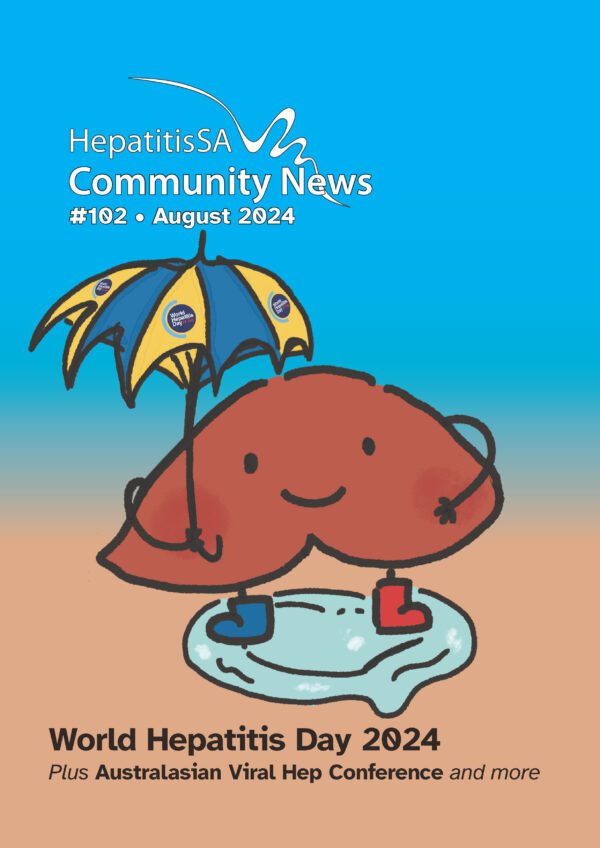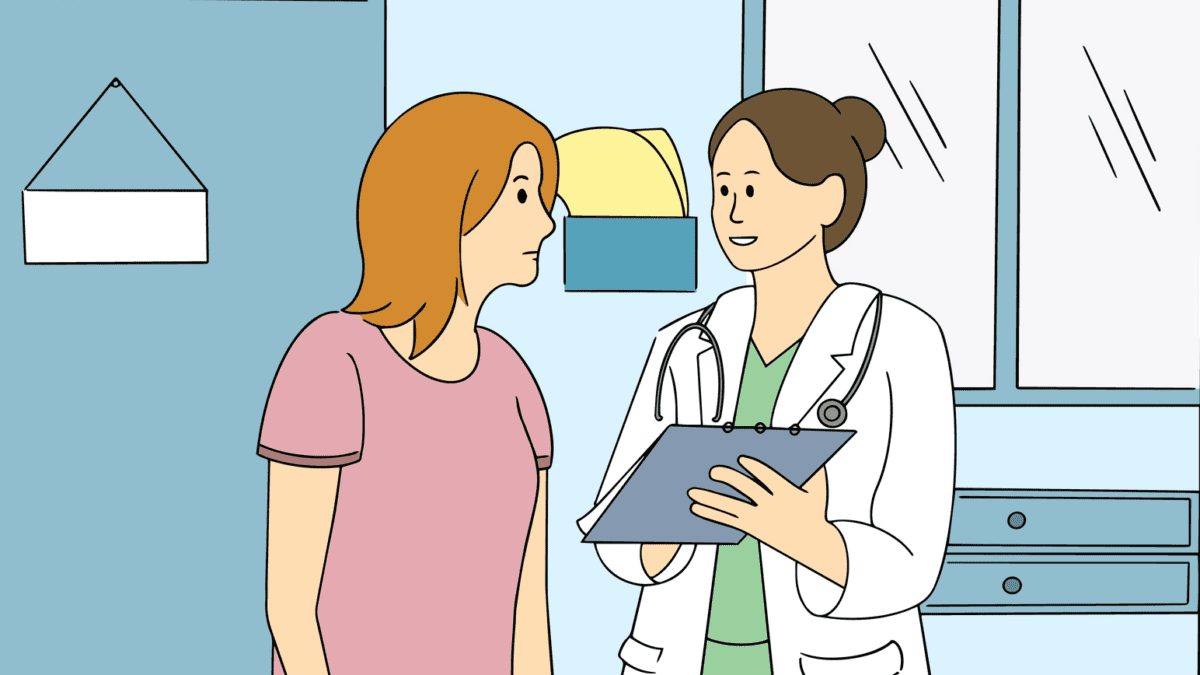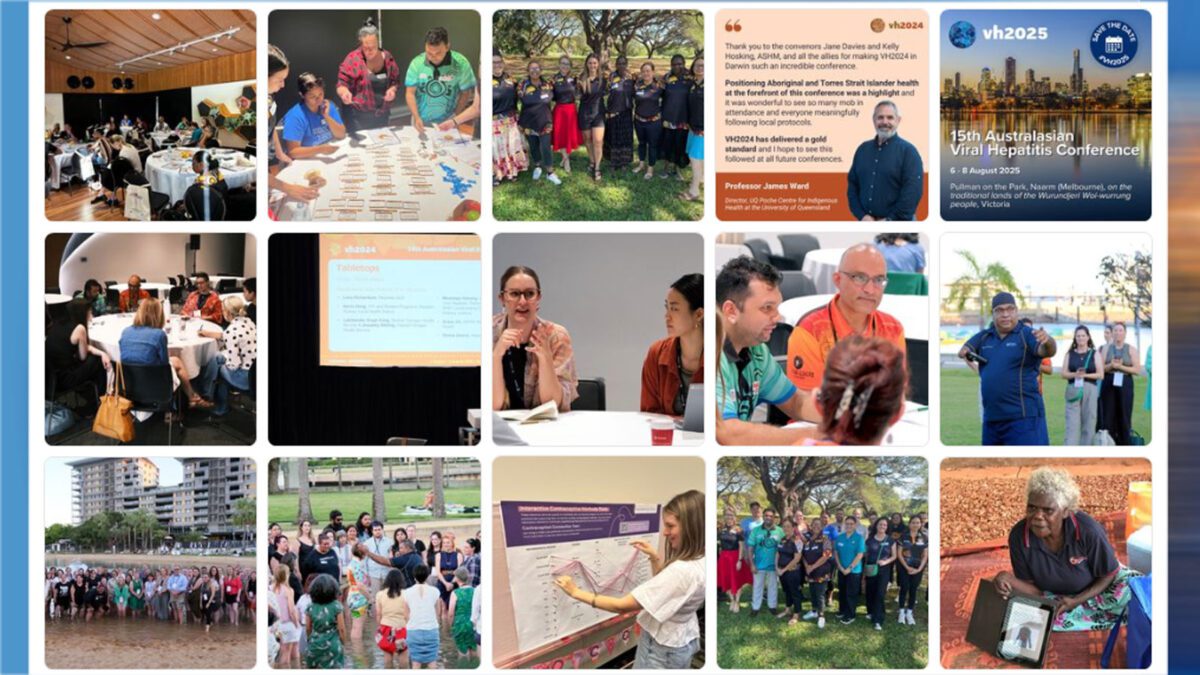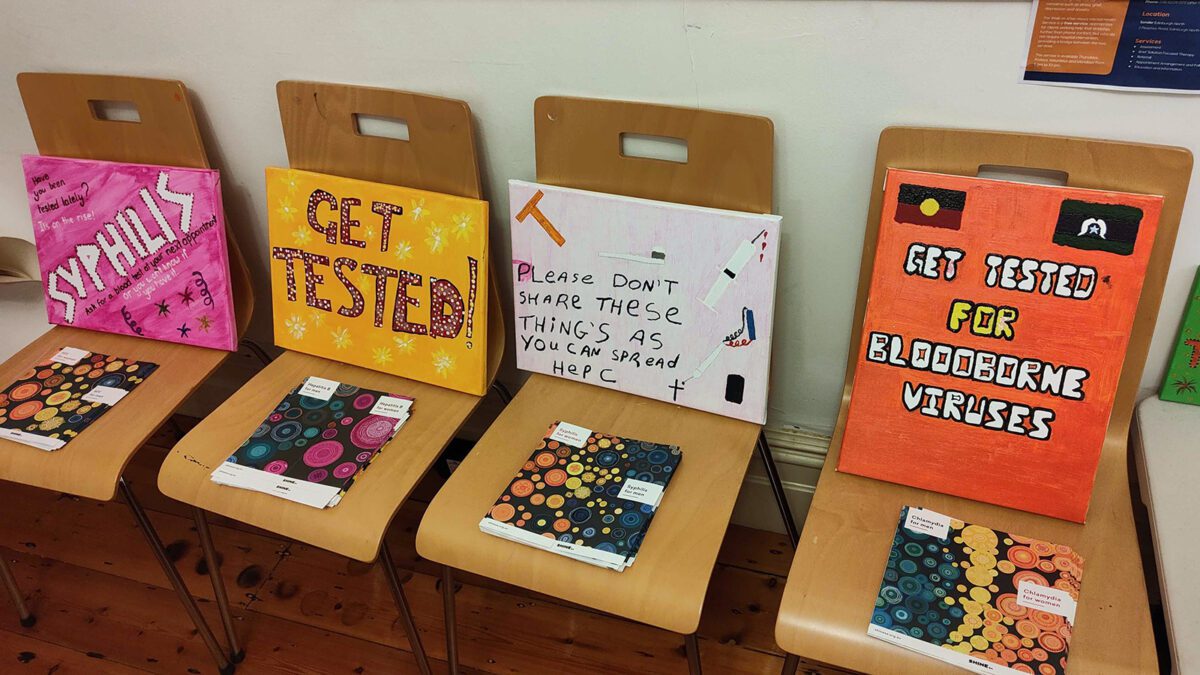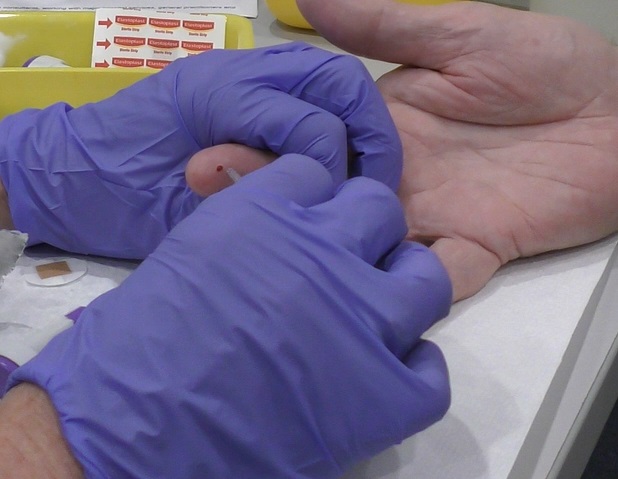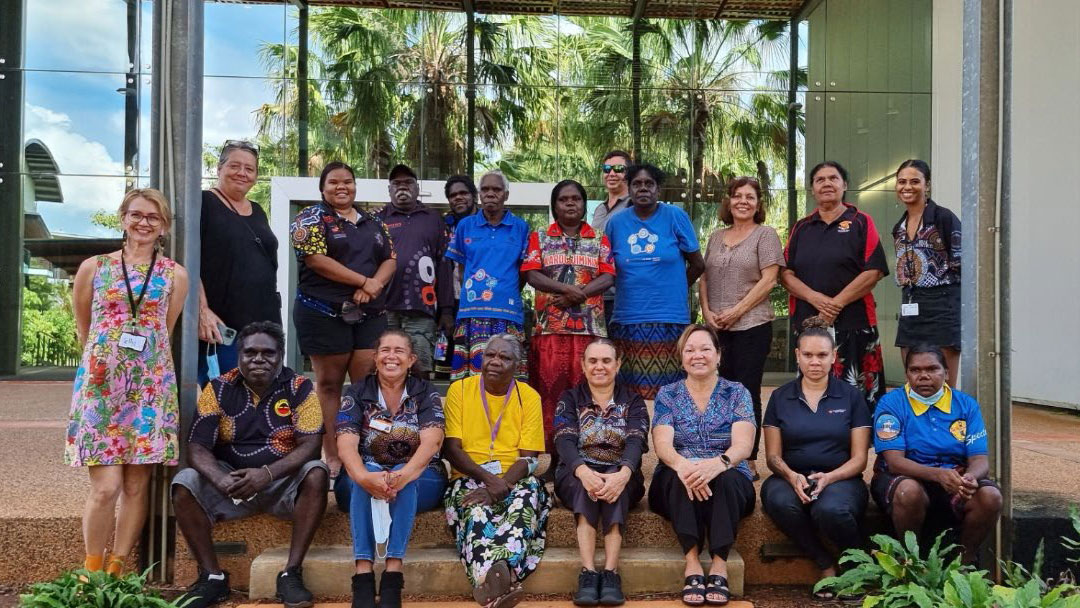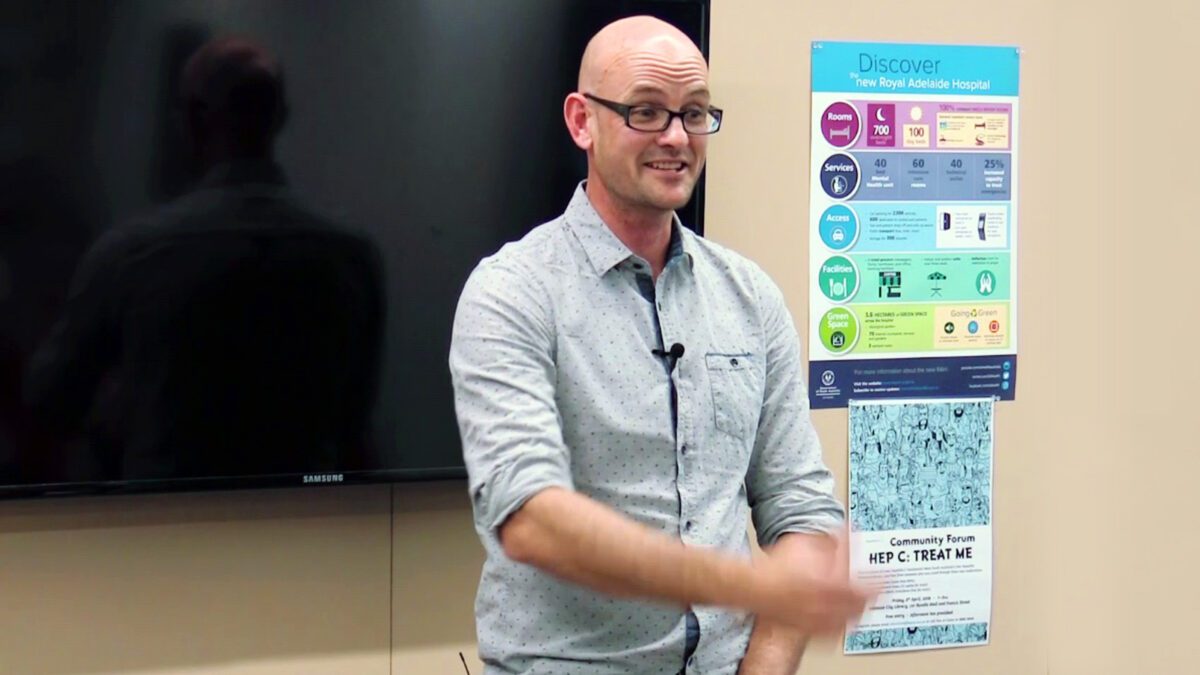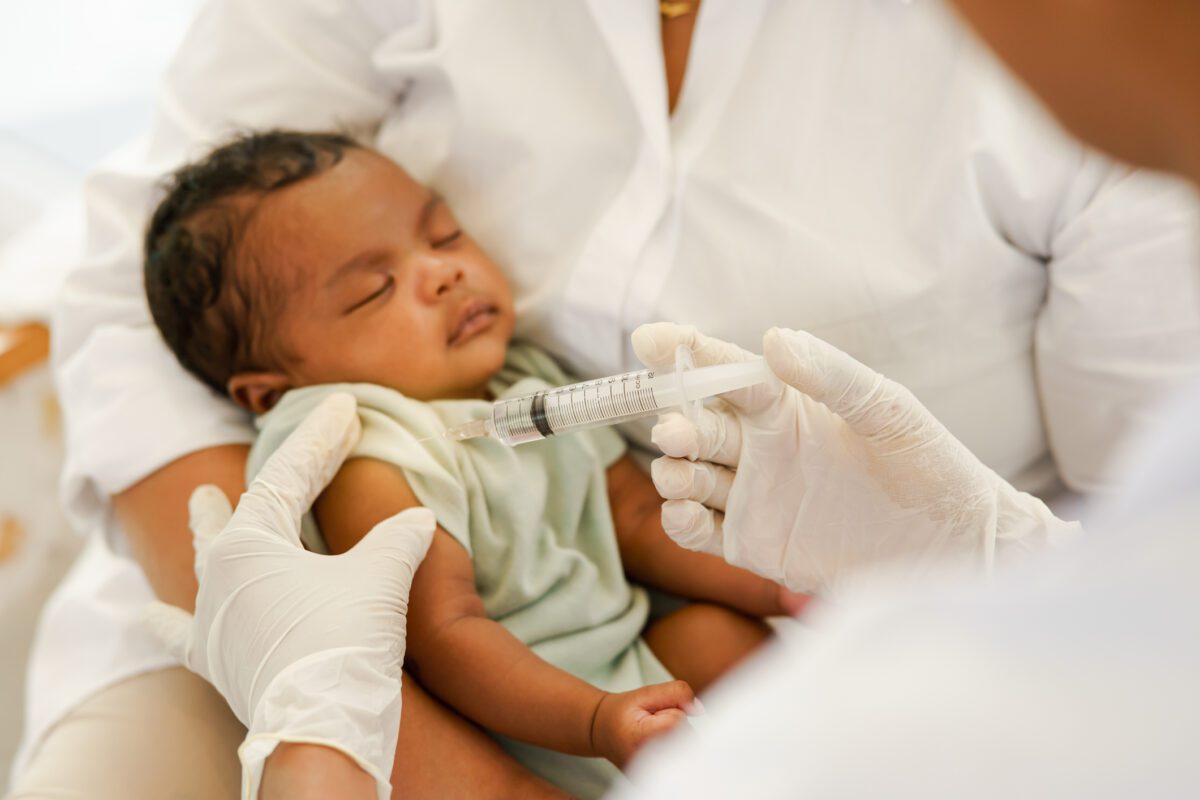A liver health scan would not be on your ‘to-get’ list when you visit your local stores, so shoppers at the Arndale Shopping Centre in Kilkenny, north-west of Adelaide, were pleasantly surprised by the opportunity for a free check, and eagerly took up the offer.
The free Fibroscan clinic run by viral hepatitis nurse, Jeff Stewart, was part of an awareness raising activity carried out with Relationships Australia South Australia’s PEACE Multicultural Services and Hepatitis SA for the 2024 World Hepatitis Day campaign.
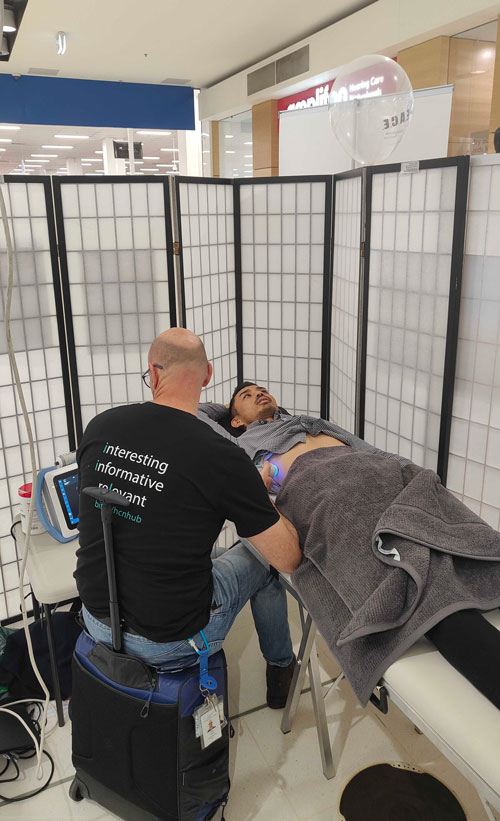
Speaking to a Seven Network News, Hepatitis SA Education Coordinator, Jenny Grant, explained that the liver scan would take only about 15 minutes and people would get their results on the spot so they can see “the shape of their liver and where it’s at”.
Results are recorded in a written report which participants can take to their GP for follow up action if needed.
The Hepatitis SA team offered printed information about hepatitis in different languages, and had conversations with community members as they waited their turn. PEACE workers were able to advise people on where they might get further support and counselling in languages other than English, should the need arise.
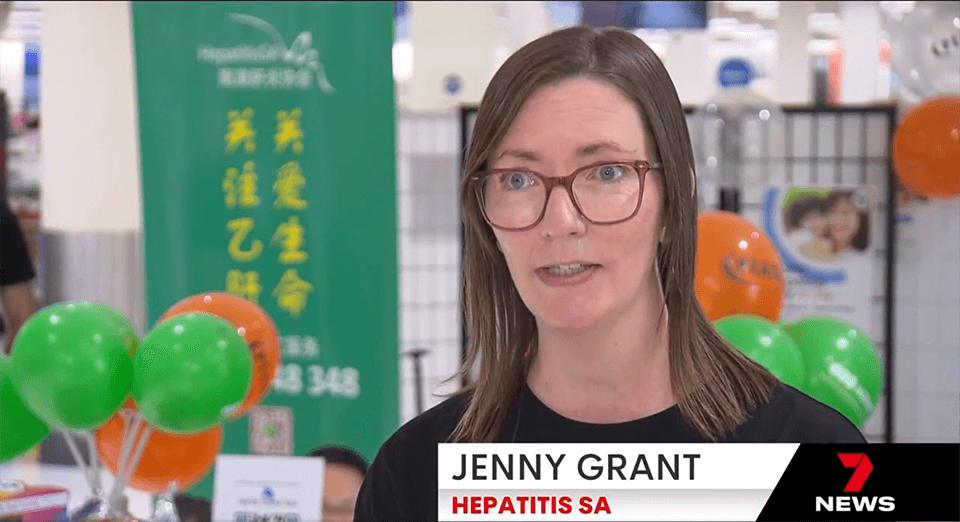

PEACE Multicultural Services Program Manager, Memoona Rafique, said bringing services such as liver health scans into the community “is extremely important as there is a lot of stigma around hepatitis, getting tested or treated”.
In South Australia, it is estimated that over 16,000 people live with hepatitis B or hepatitis C. Of those, about 30 per cent of people with hepatitis B, and 20 per cent of those with hepatitis C, are undiagnosed. Hepatitis B and hepatitis C are the leading causes of liver cancer, the fastest growing cause of cancer-related deaths in Australia.
In all, 49 people received liver scans that day. Eight people who missed out were put on a waiting list and Hepatitis SA took a call from someone who had seen the news on TV, asking if a similar event could be held down south. PEACE and Hepatitis SA workers spoke to more than 100 people, in addition to the 49 who were fibro-scanned.
Fibroscan – what is it?
Until about 10 years ago, liver fibrosis had to be determined by a biopsy. This was an invasive procedure which required preparation and surgery. FibroScan is the commercial name for a relatively recent ultrasound-based technology known as transient elastography or TE. In 2013, it was approved by the FDA for use in assessing liver fibrosis and have gradually replaced liver biopsies as the standard monitoring tool for diagnosing and assessing liver damage.
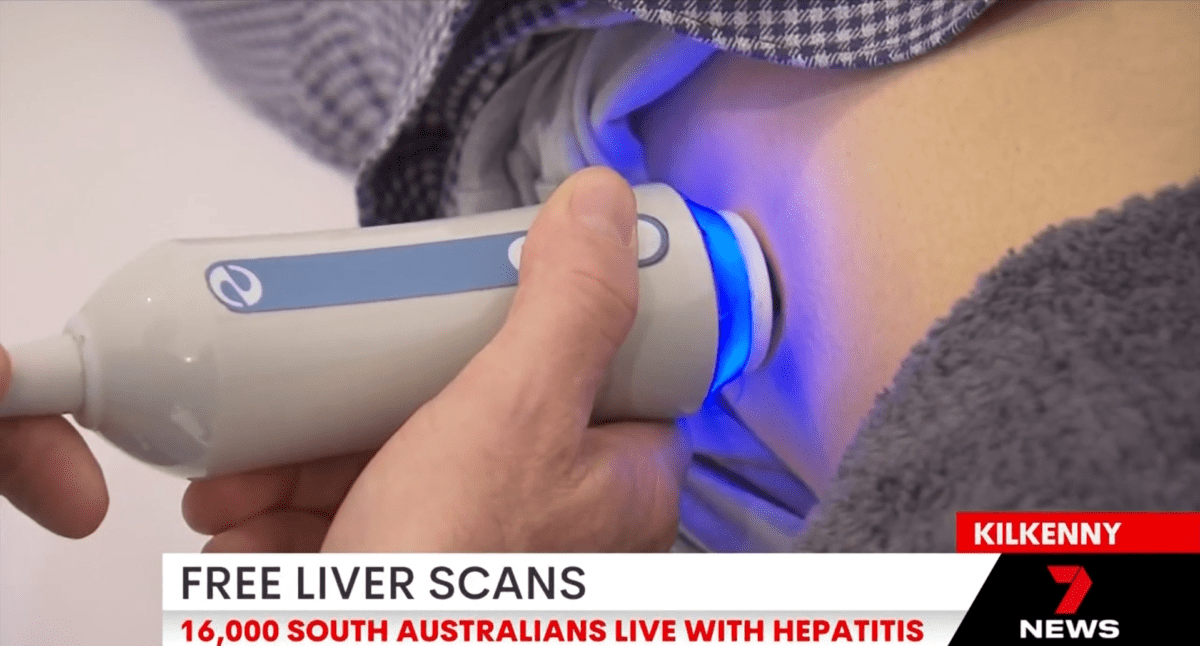
The scan is performed at the bedside in a clinic or similar setting, with the FibroScan machine and a probe similar to those used for ultra-sound scans in pregnancies. There is no pain and no need for sedation. Results can be read immediately off the screen. The time taken to complete a scan may vary depending on each individual, the size of the liver and the tissues surrounding the organ. Read more about fibroscans here.
You can get a fibroscan from your closest liver health clinic or some private radiology services. If you think your liver might be at risk, contact your nearest viral hepatitis nurse.
Central Adelaide Local Health Network
Queen Elizabeth Hospital
Phone: 0423 782 415, 0466 851 759 or 0401 717 953
Fax: (08) 8240 9609
Royal Adelaide Hospital
Phone: 0401 125 361 or (08) 7074 2194
Fax: (08) 7074 6247
Northern Adelaide Local Health Network
Phone: 0401 717 971 or 0413 285 476
Fax: (08) 7485 4011
Southern Adelaide Local Health Network
Phone: 0466 777 876 or 0466 777 873
Office: (08) 8204 6324
Fax: (08) 8204 6420
Last updated 9 September 2024
More from:
Enjoyed this article? Subscribe to be notified whenever we publish new stories.
Subscribe for Updates
